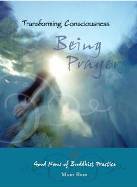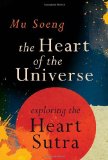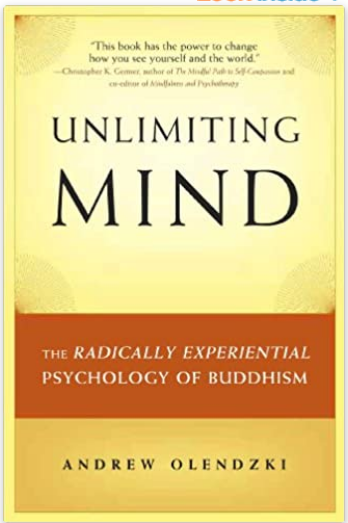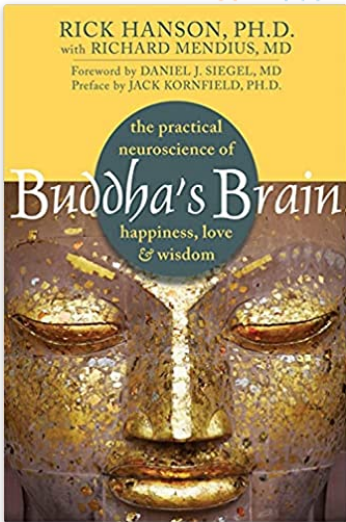Contemplative Support - Recommended Reading
Back to Previous Page
Buddhist/Eastern - Buddhist Traditions and other Eastern Resources
The books in this first list are recommended as first reading because they provide an inclusive overview of important understandings in Buddhist practice in general. Working with these materials first will make your further reading more efficient and your practice development more effective. They are not elementary or necessarily easy teachings, but good knowledge to further build upon.
- Aronson, Harvey. Buddhist Practice on Western Ground: Reconciling Eastern Ideals and Western Psychology
.
Harvey?s writing clarifies many issues regarding the understanding of Buddhist practice in light of psychology or western knowledge of good mental health. Reading this work will help you avoid common pitfalls in incorporating an eastern practice into western cultural experience. I recommend it to meditation students so that long after leaving class they have in-depth answers to critical questions that have come up as they begin the practice.

- Batchelor, Stephen. The Awakening of the West: The Encounter of Buddhism and Western Culture
.
This is an excellent history of how Buddhism came to the West, including roots of the developing traditions for westerners, the primary teachers, and differences among the traditions.
- Byrom, Thomas, trans. The Dhammapada: The Sayings of the Buddha (Sacred Teachings)
.
- Cleary, Thomas, trans. Dhammapada: The Sayings of Buddha
.


Two translations of the Dhammapada, one source of foundational ethical teachings of Buddha. These are good to read in small segments, perhaps after a meditation session, to savor and digest slowing, and integrate into life experience. I first used them as companion reading with a Christian ethical resource - Joan Chittister?s commentary on the Rule of St. Benedict. The parallels were very interesting and mutually supporting.
- Epstein, Mark. Going to Pieces without Falling Apart: A Buddhist Perspective on Wholeness
.

Mark Epstien brings understanding of Buddhist practice in light of psychology or western knowledge of good mental health. I especially like the way Epstein uses the Four Noble Truths to demonstrate the great value of Buddhist practice to mental health. It is a good introduction to an integrated understanding of the four noble truths.
- Goldstein, Joseph. One Dharma: The Emerging Western Buddhism
.

Joseph's latest book is a great follow-up to the history offered in The Awakening of the West. He demonstrates a possible coming together of traditions, a reconstellation of the teachings as skillful means to use across the board rather than separate sectarian dominions. I love the way he does this without denigrating any tradition.
- Goldstein, Joseph. The Experience of Insight: A Simple and Direct Guide to Buddhist Meditation (Shambhala Dragon Editions)
.
- Goldstein, Joseph, and Jack Kornfield. Seeking the Heart of Wisdom: The Path of Insight Meditation (Shambhala Classics)
.


These two books are one and two, in the listed order, of an introduction to the Buddhist teachings offered through the Insight Meditation network. They encompass basic concepts and practices of the teachings. An excellent, well founded beginning for grasping the breadth of the practice by two leading teachers of this community. Seeking the Heart of Wisdom is the only book these two primary teachers have written together.
- Kornfield, Jack. A Path with Heart : A Guide Through the Perils and Promises of Spiritual Life
.

This book offers a deepening of the teachings, a culmination of Jack Kornfield?s teaching up to 1993, incorporating western connections in psychology and a little with religion. It includes practice suggestions and meditations, as well as additional reading. As Seeking the Heart of Wisdom and The Experience of Insight, it is an excellent practice manual.
- Rees, Mary. Being Prayer-Transforming Consciousness: Good News of Buddhist Practice
 Being Prayer answers questions about compatibility of Buddhist teachings and Christianity (and to some extent other theistic traditions). Among other goals, I wanted to show that Buddhist practice is a way to make all of life prayer, to demonstrate that the practices are joyful and rich (definitely not nihilistic), and to summarize and reinforce some of the philosophy behind the experiential focus of the teachings. It is a good resource for beginning practice, but also provides practice tools for all levels of understanding. It is especially valuble as practice support when life is most challenging.
Being Prayer answers questions about compatibility of Buddhist teachings and Christianity (and to some extent other theistic traditions). Among other goals, I wanted to show that Buddhist practice is a way to make all of life prayer, to demonstrate that the practices are joyful and rich (definitely not nihilistic), and to summarize and reinforce some of the philosophy behind the experiential focus of the teachings. It is a good resource for beginning practice, but also provides practice tools for all levels of understanding. It is especially valuble as practice support when life is most challenging.
- Buy from Mary's Shopping Cart
- Buy from Amazon - Being Prayer -Transforming Consciousness: Good News of Buddhist Practice
- Salzberg, Sharon. Faith: Trusting Your Own Deepest Experience
.

Sharon is one of the three primary teachers in the Insight Meditation network in the US. She has written other books including two books on Loving-kindness and edited a book of talks or writings of various Senior Teachers within the tradition. This one is my favorite. She speaks candidly about her own life and the relationship of her happiness to her practice. Her writings especially bring in important heart qualities of the teachings, not to mention addressing the critical questions and misunderstandings about the meaning of the word faith.

(Back to Top)
Only one title for each teacher usually listed. Other writings by the teachers are also recommended. These manuals are intended for deepening practice by offering additional instructional guidance that you can follow in your own time, reading in small segments, savoring and digesting as you slowly proceed.
-
Boorstein, Sylvia. Pay Attention, for Goodness' Sake : The Buddhist Path of Kindness
Brach, Tara. Radical Acceptance : Embracing Your Life With the Heart of a Buddha
Feldman, Christina. Principles of Meditation
Fronsdal, Gil. The Issue at Hand: Essays on Buddhist Mindfulness Practice.
Harrison, Gavin. In the Lap of the Buddha
Kornfield, Jack. Teachings of the Buddha (Shambhala Library)
Kramer, Greg. Meditating Together, Speaking from Silence: The Practice of Insight Dialogue.
Levine, Stephen. A Gradual Awakening
Levine, Stephen. A Year to Live : How to Live This Year as If It Were Your Last
Macy, Joanna. World as Lover, World as Self
Meadow, Mary Jo. Gentling The Heart : Buddhist LovingKindness Practice for Christians
Nisker, Wes. Buddha's Nature : A Practical Guide to Enlightenment Through Evolution
Rosenberg, Larry. Breath by Breath : The Liberating Practice of Insight Meditation
Salzberg, Sharon. Lovingkindness : The Revolutionary Art of Happiness (Shambhala Library)
Smith, Rodney. Lessons From the Dying
Titmuss, Christopher. Light on Enlightenment: Revolutionary Teachings on the Inner Life
Weisman, Arinna, and Jean Smith. The Beginner's Guide to Insight Meditation
Buddhadasa, Bhikkhu. Heartwood of the Bodhi Tree : The Buddha's Teaching on Voidness
Chah, Ajahn. Being Dharma : The Essence of the Buddha's Teachings
Rahula, Walpola. What the Buddha Taught
Sumedho, Ajahn. The Way It Is.
-
Analayo. Satipatthana : The Direct Path to Realization
Aronson, Harvey B. Love and Sympathy in Theravada Buddhism
Bodhi, Bhikkhu. The Connected Discourses of the Buddha: A Translation of the Samyutta Nikaya
Buddhadasa, Bhikkhu. Mindfulness With Breathing : A Manual for Serious Beginners
Buddhaghosa, Bhadantacariya. The Path of Purification: Visuddhimagga
Flickstein, Matthew. Swallowing the River Ganges : A Practice Guide to the Path of Purification
Mahasi Sayadaw. The Progress of Insight: A Treatise on Satipatthana Meditation
Nanamoli, Bhikkhu (original translation) and Bhikkhu Bodhi, trans. The Middle Length Discourses of the Buddha: A Translation of the Majjhima Nikaya (Teachings of the Buddha)
Nyanaponika Thera. Abhidhamma studies: Researches in Buddhist psychology
Pandita, Sayadaw U. In This Very Life : The Liberation Teachings of the Buddha
Piyadassi Thera. Buddha's Ancient Path
Rahula, Walpola. What the Buddha Taught
Silananda, U. The Four Foundations of Mindfulness, 2nd Edition
Soma Thera. The Way of Mindfulness: the Satipatthana Sutta and Commentary
Walshe, Maurice, trans. The Long Discourses of the Buddha : A Translation of the Digha Nikaya (Teachings of the Buddha)
-
http://www.abhayagiri.org
http://www.accesstoinsight.org
http://www.amaravati.org
http://www.dharmastream.org
-
Beck, Charlotte Joko. Everyday Zen: Love & Work
Buswell, Robert E. The Korean Approach to Zen: The Collected Works of Chinul
Buswell, Robert E., and Robert M. Gimello. Paths to Liberation: The Marga and Its Transformations in Buddhist Thought (Studies in East Asian Buddhism)
Chodron, Pema. The Places That Scare You: A Guide to Fearlessness in Difficult Times
Dalai Lama. The Dalai Lama at Harvard
Dalai Lama. Transforming the Mind: Teachings on Generating Compassion
Hanh, Thich Nhat. Transformation and Healing: Sutra on the Four Establishments of Mindfulness
Klein, Anne C. Meeting the Great Bliss Queen
Norbu, Chogyal Namkhai. Dzogchen: The Self-Perfected State: Buddhists, Feminists, and the Art of the Self
Shantideva, Acharya. A Guide to the Bodhistattva's Way of LIfe
Suzuki, Shunryu. Zen Mind, Beginner's Mind (Shambhala Library)
Trungpa, Chogyam. Cutting Through Spiritual Materialism
Williams, Angel Kyodo. Being Black: Zen and the Art of Living with Fearlessness and Grace
-
Amaro, Ajahn. Small Boat, Great Mountain: Theravadan Reflections on the Natural Great Perfection.
Buddhadasa, Bhikkhu. Heartwood of the Bodhi Tree: The Buddha's Teaching on Voidness.
Hopkins, Jeffrey. Meditation on Emptiness.
Klein, Anne C. Path to the Middle.
Macy, Joanna. Mutual Causality in Buddhism and General Systems Theory: The Dharma of Natural Systems.
Macy, Joanna. World as Lover, World as Self.
Nagao, Gadjin. The Foundational Standpoint of Madhyamika Philosophy.
Napper, Elizabeth. Dependent Arising and Emptiness.
Rabten, Geshe. Echoes of Voidness.
Talbot, Michael. The Holographic Universe.
Von Bruck, Michael. "Buddhist Sunyata and the Christian Trinity: The Emerging Holistic Paradigm? in Buddhist Emptiness and Christian Trinity, ed. Roger Corless and Paul F. Knitter.
-
Krishna, Gopi. Kundalini: The Evolutionary Energy of Man.
Nisargadatta Maharaj. I Am That: Talks with Sri Nisargadatta.
-
Feild, Reshad. Steps to Freedom.
Hafiz. The Gift: Poems by Hafiz, The Great Sufi Master, trans. David Ladinsky.
Kabir. The Kabir Book: Forty-Four of the Ecstatic Poems of Kabir, trans. Robert Bly.
Rumi. Open Secret: Versions of Rumi, trans. John Moyne and Coleman Barks.
Shah, Idries. Learning How to Learn: Psychology and Spirituality in the Sufi Way.
Tweedie, Irina. The Chasm of Fire: A Woman?s Experience with the Teachings of a Sufi Master.
(Back to Top)
Selected New Additions;
2014

2010


2009

(Back to Top)
